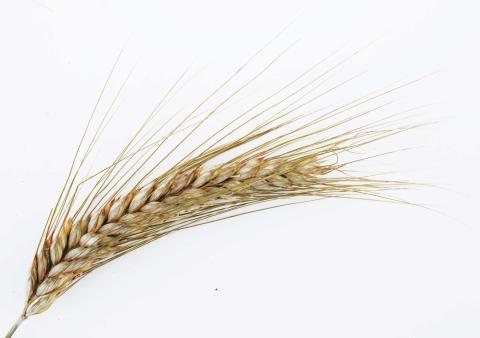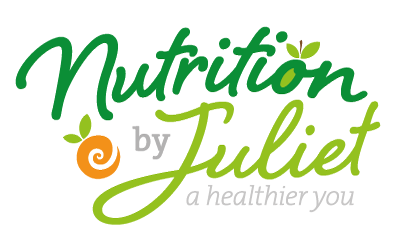
We have all heard of a gluten free diet but is it bad for you?
People who suffer from coeliac disease (an autoimmune disease) must eat a strictly gluten free diet in order to control their condition, as do those with dermatitis herpetiformis, gluten ataxia or wheat allergy. Many others avoid gluten if they believe they have a sensitivity to it and a study showed symptoms of non-coeliac gluten sensitivity can include both gastro-intestinal problems and systemic symptoms including fatigue, headache, anxiety, brain fog and joint or muscle pain. But if you’re not a coeliac, is it really healthy to cut out gluten or is a gluten free diet bad for you?
Gluten is the main protein in wheat, rye and barley and as such has become a common ingredient in our diet, both from increased wheat consumption and from the addition of gluten to processed foods where it is used as a thickener, flavour enhancer, filler, emulsifier or texture modifier.
The problem however, is that gluten is hard to digest - your gut usually breaks down proteins into small particles to be absorbed through the lining of the small intestine, but gluten proteins are resistant to the protease enzymes and therefore do not get completely broken down.
Additionally gluten is a powerful stimulant of zonulin, a small protein produced by the cells lining the intestines. Zonulin causes the tight junctions between cells in the gut lining to widen, a condition called intestinal hyperpermeability. Although this is usually temporary, in sensitive people this could allow larger food particles (even gluten which has not been completely digested), toxins or bacteria to enter the blood stream and trigger inflammation and disease. Studies have also shown that gluten can also trigger changes in certain immune cells in the gut and in the balance of friendly gut bacteria.
Nevertheless, wheat contributes to our health due to its fibre content, B vitamins, and the minerals iron, zinc and selenium. An amazing fact is that gluten containing grains provide 81% of the prebiotic fibre (necessary for healthy gut bacteria) in the average North American diet.
So can I replace gluten by using gluten free products from the shops? Unfortunately there are some negative aspects to these gluten free products which are often higher in calories, sugar and fat than their ‘normal’ equivalents as well as being lower in in fibre, protein and iron. A look at the ingredients in one gluten free bread revealed the ingredients hydroxypropyl methyl cellulose, which is a non-fermentable semi-synthetic dietary fibre, plus bamboo fibre, neither of which were used in the same brand’s ‘normal’ bread, nor are they found in most people’s kitchens! Substituting rice flour in gluten free products risks compounding contamination by heavy metals such as arsenic, and gluten free flour blends and bread are also not fortified with vitamins and minerals like normal varieties are. In fact fortification of flour has been a key government lead health initiative for years but it hasn’t been extended to the gluten free alternatives.
Further problems can be found with gluten free products containing additives like microbial transglutaminase which is used to increase volume and improve the structure of bread. Unfortunately microbial transglutaminase looks very like tissue transglutaminase in our bodies, the target of antibodies in coeliac disease. So the very products meant to help coeliacs could potentially be contributing to the problem!
A whole food gluten free diet can however be extremely healthy, gluten is certainly not an essential part of a healthy diet. It is actually a low fibre, high processed food diet which is unhealthy and a nutritional therapist can help you create a healthy gluten free diet with plenty of fruit and vegetables for nutrients and fibre to support your microbiome as well as gluten free whole grains and pseudo-grains like oats (certified gluten free) or buckwheat. Buckwheat is not related to wheat at all, in fact it is part of the rhubarb family and is commonly used in Brittany to make their crepes or galettes and you can easily substitute buckwheat flour in your own pancake recipes. It is also made into pasta and makes a delicious gluten free bread – click here for my favourite bread recipe: https://helentzouganatos.com/high-fibre-buckwheat-chia-gluten-free-brea…
If you would like to discuss whether a gluten free diet could help you or if you want advice on how to go gluten free healthily, please contact me to arrange a free discovery call.
References
Fasano, A., 2020. All disease begins in the (leaky) gut: Role of zonulin-mediated gut permeability in the pathogenesis of some chronic inflammatory diseases.
Fasano, A., 2011. Zonulin and its regulation of intestinal barrier function: The biological door to inflammation, autoimmunity, and cancer.
Lerner, A., O’Bryan, T., Matthias, T., 2019. Navigating the Gluten-Free Boom: The Dark Side of Gluten Free Diet.
Melini, V., Melini, F., 2019. Gluten-Free Diet: Gaps and Needs for a Healthier Diet.
Raehsler, S.L. et al., 2018. Accumulation of Heavy Metals in People on a Gluten-Free Diet.
